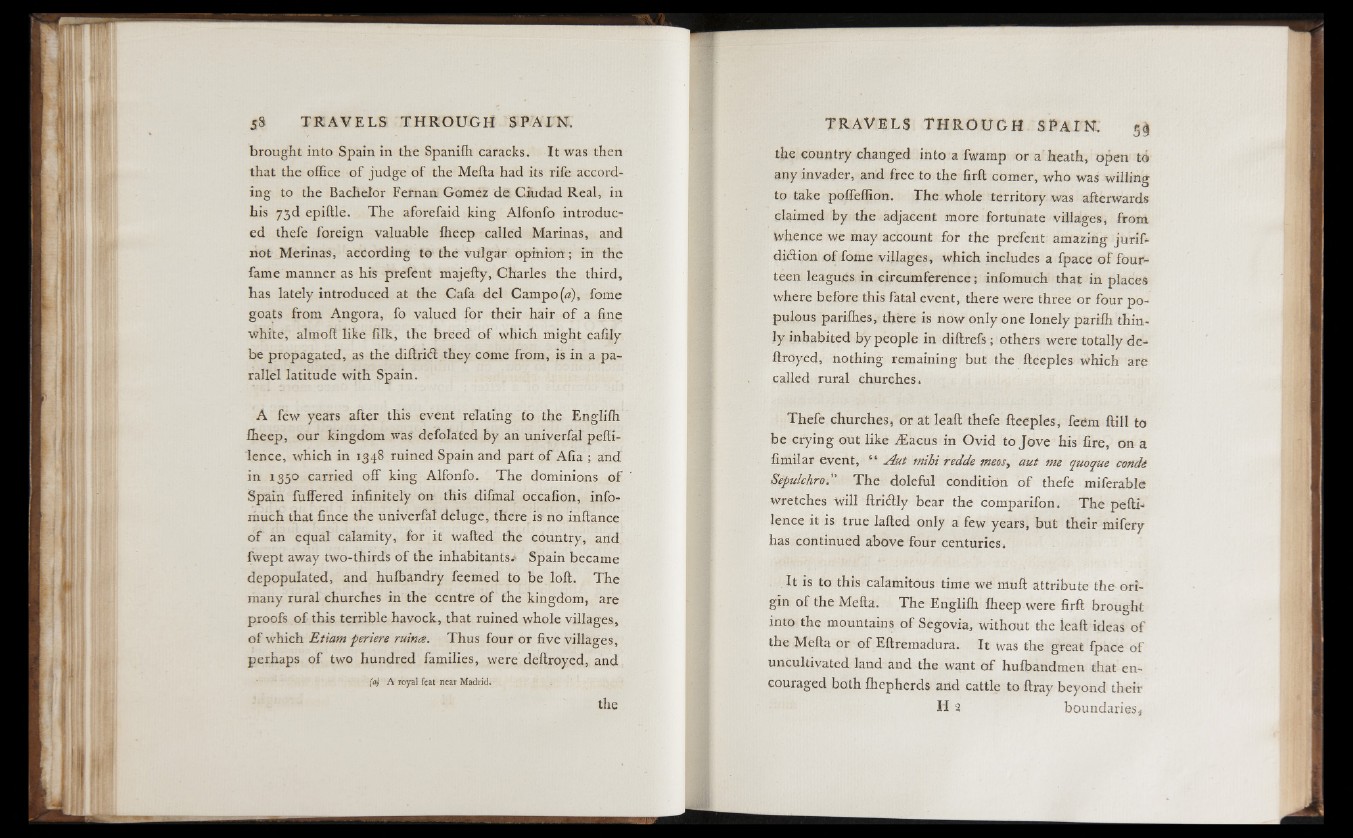
brought into Spain in the Spanifh caracks. It was then
that the office o f judge of the Mefta had its rife according
to the Bachelor Fernan Gomez de Ciudad Real, in
his 73d epiftle. The aforefaid king Alfonfo introduced
thefe foreign valuable iheep called Marinas, and
not Merinas, according to the vulgar opinion; in the
fame manner as his prefent majefty, Charles the third,
has lately introduced at the Cafa del Campo(a), fome
goats from Angora, fo valued for their hair o f a fine
white, almoft like filk, the breed o f which might eafily
be propagated, as the diitrid: they come from, is in a parallel
latitude with Spain.
A few years after this event relating to the Engliih
iheep, our kingdom was defolated by an univerfal pefti-
Ience, which in 1348 ruined Spain and part of Afia ; and
in 1350 carried oif king Alfonfo. The dominions o f
Spain fuffered infinitely on this difmal occafion, info-
much that fince the univerfal deluge, there is no inftance
o f an equal calamity, for it wafted the country, and
fwept away two-thirds of the inhabitants^ Spain became
depopulated, and hufbandry feemed to be loft. The
many rural churches in the centre of the kingdom, are
proofs of this terrible havock, that ruined whole villages,
o f which Etiam periere ruina. Thus four or five villages,
perhaps o f two hundred families, were deftroyed, and
(a) A royal feat near Madrid*
the
the country changed into a fwamp or a heath, open to
any invader, and free to the firft comer, who was willing
to take poffeifion. The whole territory was afterwards
claimed by the adjacent more fortunate villages, from
whence we may account for the prefent amazing jurif-
diflion of fome villages, which includes a fpace o f fourteen
leagues in circumference; inibmuch that in places
where before this fatal event, there were three or four populous
pariihes, there is now only one lonely parilh thinly
inhabited by people in diftrefs; others were totally deftroyed,
nothing remaining but the fteeples which are
called rural churches.
Thefe churches, or at leaft thefe fteeples, feem ftill to
be crying out like ^Eacus in Ovid to Jove his fire, on a
fimilar event, “ Aut mihi redde meos, aut me quoque condi
Sepulchre." The doleful condition o f thefe miferable
wretches will ftrhftly bear the comparifon. The pefti-
lence it is true lafted only a few years, but their mifery
has continued above four centuries.
It is to this calamitous time we mull attribute the origin
of the Mefta. The Engliih iheep were firft brought
into the mountains o f Segovia, without the leaft ideas o f
the Mefta or o f Eftremadura. It Was the great fpace of
uncultivated land and the want o f hufbandmen that encouraged
both ihepherds and cattle to ftray beyond their
H 9 boundaries*